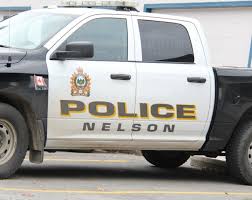The next Rossland FireSmart workshop -- Saturday, October 21
Would Rossland be vulnerable to the wildfire losses experienced elsewhere in BC over the summer of 2017 in the event of a nearby wildfire? Or could FireSmart measures provide protection? Don Mortimer, Rossland resident and consultant with FireSmart Canada, thinks preventive measures can provide significant protection.
Residents in Rossland’s Iron Colt neighbourhood are tackling wildfire risk on their properties to prepare for next year’s fire season. The residents have organized a two-hour FireSmart Awareness Workshop for themselves, to take place on Saturday, Oct. 21, from 9:00 am to 11:00 am, in the garage at 2680 Iron Colt Avenue. This session is primarily for Iron Colt residents, but other interested Rosslanders are welcome.
Earlier this year, a few Iron Colt homeowners ― led by Iron Colt resident Gonzalo Ansede ― formed a FireSmart Board and developed a FireSmart Plan under the provincially funded FireSmart Communities Program. This FireSmart Plan focuses resident efforts to reduce fire hazard on their individual properties.
Ansede and several other Rossland residents attended a FireSmart Community Champion workshop in the spring, receiving training in FireSmart basics about how to reduce wildfire hazard in their areas.
Ansede was enthusiastic about the training. “There were ‘Community Champions’ ― as the program calls us ― from three Rossland neighbourhoods; Black Bear and McLeod Avenue East are also participating in the program. In half a day we learned how to assess and reduce the wildfire hazards to our homes as well as how to follow the national FireSmart Communities Program to achieve recognition status.”
That training was delivered by Mortimer, who has trained over 700 fire professionals to work as Local FireSmart Representatives with wildfire-vulnerable neighbourhoods in their respective communities. Mortimer works with the City of Rossland FireSmart Program and functions as the Local FireSmart Representative for the three active FireSmart boards in the Rossland neighbourhoods. “We’re working with priority neighbourhoods on the City perimeter right now but other neighbourhoods have expressed interest and the City of Rossland plans to re-apply for grant funding in 2018 and will continue with the program in those neighbourhoods if successful” states Mortimer.
Mortimer is pleased with the Rossland response to the FireSmart Communities Program, but not surprised. “Rossland has a decade long involvement with FireSmart initiatives and the City has had a Community Wildfire Protection Plan since 2007 – everyone has noticed the steady progress with wildfire hazard reduction by forest thinning on strategically located City and Crown lands within and around the City.”
Mortimer is excited with the FireSmart Communities Program potential to take those FireSmart hazard mitigations from public land onto private properties. “This program is run by the residents themselves, taking priority actions on simple steps to reduce the wildfire hazard on their homes and in their yards – they work with a fire professional like myself who recommends specific actions and gets them started. Progressively, by staging annual FireSmart Events like the FireSmart Awareness Workshop Iron Colt is holding on Saturday, the neighbourhood reduces wildfire risk and ultimately achieves national recognition under the FireSmart Communities Program.”
Looking forward, Mortimer sees a strong future for the FireSmart Communities initiative as wildfires become more frequent and intense in response to the effects of climate change on forest conditions. “Fort McMurray is a tragic example of how wildfires can impact forested communities. There, a community of 90,000 lost 10% of its structures and incurred a loss that ranges from 3.6 to 5 billion dollars depending on who’s counting. It will happen again somewhere, and soon. The saddest thing about the amount of loss is that it could have been so easily prevented by compliance with FireSmart guidelines.”
Post-fire investigations at Fort McMurray are showing that FireSmart structures survived overwhelmingly, with 81% of the surviving structures being FireSmart, and a conclusion that if structures on the perimeter of the town ― at the interface with the forest ― had been FireSmart, much of the fire spread from one building to another that led to the vast majority of structure loss in Fort McMurray could have been prevented.
Anyone with questions or interest in the Rossland FireSmart Communities Program can contact Don Mortimer, City of Rossland FireSmart Program at dmortimer@telus.net.
























